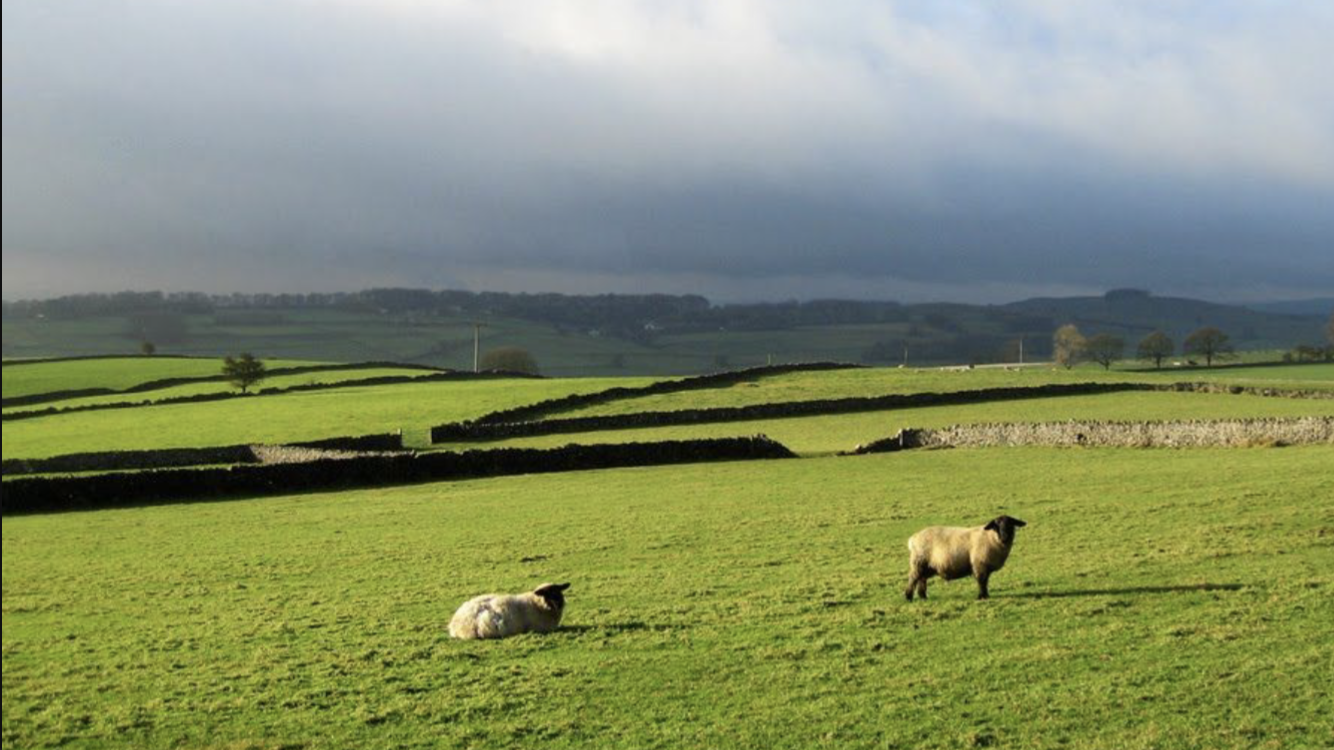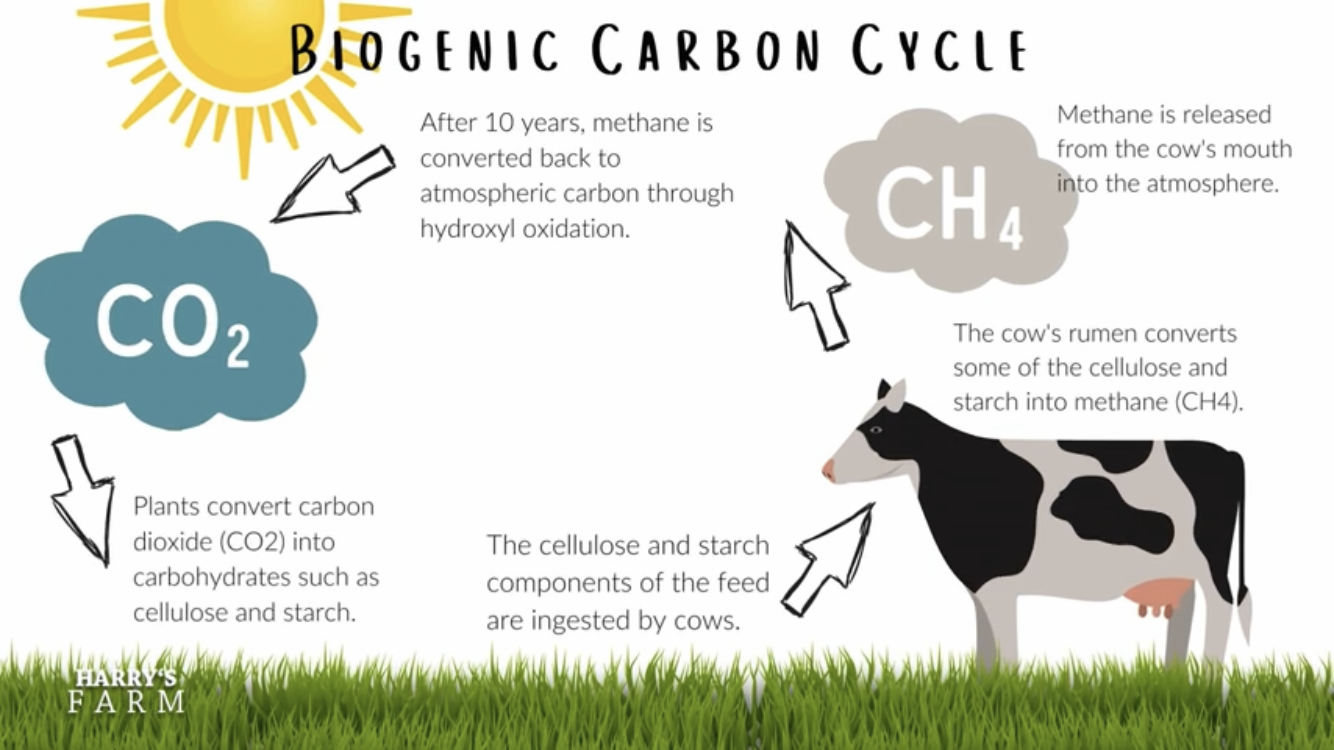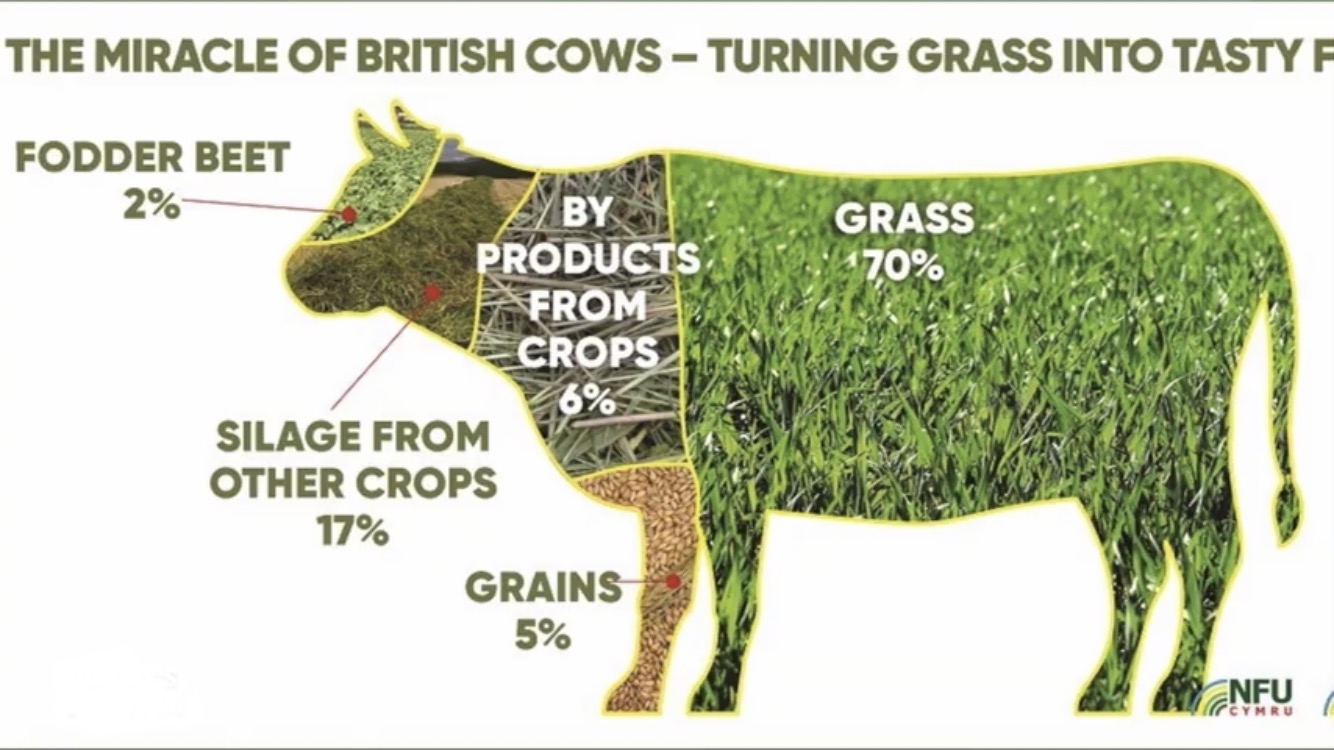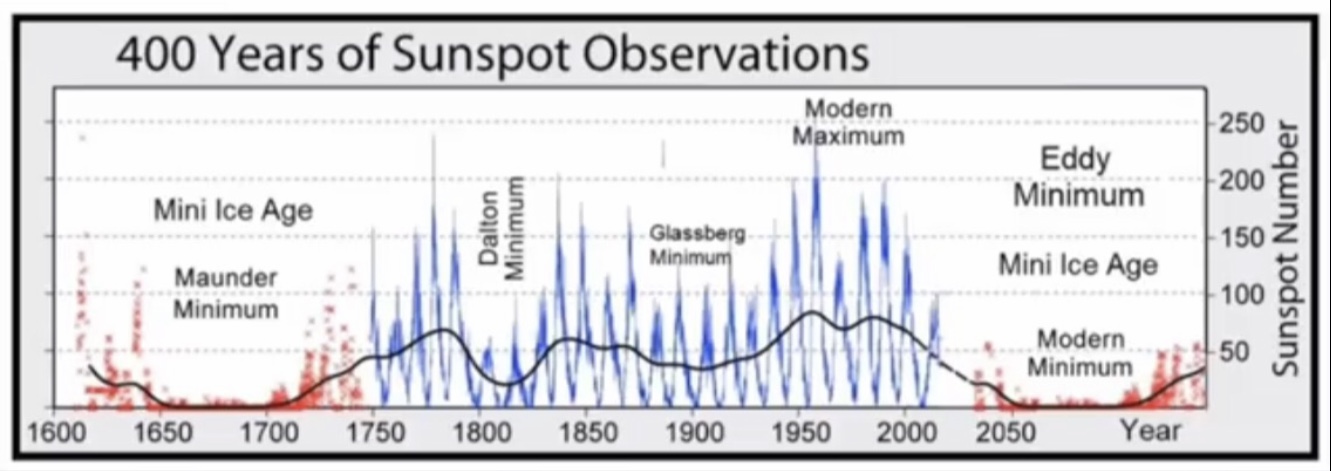Address
Chapel en le Frith, High Peak, Derbyshire
Work Hours
Monday to Friday: 9AM - 7PM
Weekend: 10AM - 5PM

The 10 year life cycle of Methane

The Role of Grass-Fed Livestock in the UK: Mitigating Methane Emissions and Biogenic Carbon Cycles Over a 10-Year Period
Introduction:
In the United Kingdom, grass-fed livestock farming is a prominent practice with said to be significant implications for greenhouse gas emissions and carbon cycles. Understanding the dynamics of methane, a short-lived climate pollutant, within a 10-year life cycle of grass-fed livestock is crucial for assessing their impact on greenhouse gas reduction.

Grass-Fed Livestock and the Methane Cycle:
In the UK, grass-fed livestock, particularly cattle, play a role in methane emissions. Methane is produced during enteric fermentation in the rumen of ruminant animals, including cows. In grass-fed systems, where animals predominantly graze on pasture, methane emissions are influenced by various factors such as diet composition, animal genetics, and grazing management practices.
10-Year Methane Life Cycle:
Methane is considered a short-lived climate pollutant with a relatively short atmospheric lifetime of around 10 years. This means that if global cow populations stay consistent cows do not increase methane gasses in the atmosphere whatsoever. As whatever is being emitted today is offset by the breakdown of the methane emitted 10 years ago. Methanes impact on global warming diminishes over time compared to long-lived greenhouse gases like water vapour and carbon dioxide. Understanding the 10-year life cycle of methane emissions from grass-fed livestock is crucial for assessing their net greenhouse gas impact.
Grass-Fed Livestock’s Impact on Methane Emissions:
Grass-fed cattle management practices in the UK have the potential to reduce methane emissions over their 10-year life cycle in several ways:
Challenges and Opportunities:
While grass-fed livestock systems offer opportunities for mitigating methane emissions and enhancing carbon cycles over their 10-year life cycle, challenges remain:
Conclusion:
In the UK, grass-fed livestock farming has the potential to mitigate methane emissions and enhance carbon cycles over a 10-year life cycle. By optimizing dietary composition, grazing management, animal genetics, and promoting carbon sequestration, grass-fed livestock systems can contribute to greenhouse gas reduction efforts. Continued research, policy support, and collaboration across the agricultural sector are essential for realising the full potential of grass-fed livestock in the reduction of greenhouse gasses.
solar minimum:
Though the upcoming solar minimum leading to a mini ice age should be more of a concern for farmers in my opinion. Crops will fail, livestock will starve. Farmers should be looking to build heated greenhouses and heated barns to grow crops inside and shelter their animals.